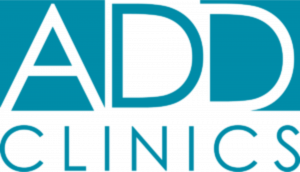
Medication Management for Adult ADD: A Comprehensive Look at Pharmacological Treatments
Adult ADD presents unique challenges, often differing significantly from childhood cases. Adults with ADD may experience difficulties in maintaining focus, organization, time management, and coping with stress, which can significantly impact their personal and professional lives. The role of medication in treating these symptoms is a critical aspect of comprehensive care for ADD.
Dr. Owen, known nationally for his expertise in treating nutrition-related illnesses, asserts that pharmacological treatment is a key component in managing Adult ADD. “Medication, when used appropriately, can be a powerful tool in alleviating the symptoms of ADD in adults. It can improve focus, reduce impulsivity, and help individuals gain better control over their daily lives,” he explains.
Dr. Owen discusses various medication options available for the treatment of Adult ADD. Stimulants, such as methylphenidate and amphetamines, are commonly prescribed and have been found to be effective in increasing concentration and decreasing impulsivity and hyperactivity. Non-stimulant medications, including atomoxetine and certain antidepressants, are also explored as alternatives, especially for individuals who may not respond well to stimulants or have co-existing conditions. Clonidine (Catapres) and guanfacine (Tenex) are blood pressure medications used to treat ADHD, especially those with insomnia or anxiety/hyperactivity components.
Dr. Owen emphasizes the importance of a personalized approach to medication management. “Each individual with ADD has unique needs. What works for one person may not work for another. Therefore, it is crucial to tailor medication plans to each patient, taking into account their medical history, lifestyle, and specific symptoms,” he notes.
Dr. Owen also addresses common concerns and misconceptions about the use of medication in treating Adult ADD. Concerns about dependency, side effects, and the stigma associated with taking medication for mental health are discussed, with Dr. Owen providing factual information to dispel these concerns. He highlights that when managed correctly, the benefits of medication can far outweigh the risks.
Furthermore, Dr. Owen underscores the importance of integrating medication management with other treatment modalities. Behavioral therapy, lifestyle changes, and nutritional interventions can complement pharmacological treatments, leading to more effective management of ADD symptoms. Dr. Owen stresses that a holistic approach, combining medication with other therapies, often yields the best outcomes.
In conclusion, Dr. Owen on Medication Management for Adult ADD offers a thorough overview of pharmacological treatments for Adult ADD. It serves as an important resource for individuals with ADD, healthcare providers, and anyone seeking to understand the complexities of managing this condition in adults.
Dr. Stanford A. Owen's Internal Medicine, Nutrition, and Psychopharmacology expertise and experience in treating ADD and related nutritional issues make him a valuable voice in this field. His insights contribute significantly to the ongoing conversation about effective ADD management strategies for adults.
Morgan Thomas
Rhino Digital, LLC
+1 504-875-5036
email us here
Distribution channels: Culture, Society & Lifestyle, Healthcare & Pharmaceuticals Industry, Human Rights, Science, World & Regional
Legal Disclaimer:
EIN Presswire provides this news content "as is" without warranty of any kind. We do not accept any responsibility or liability for the accuracy, content, images, videos, licenses, completeness, legality, or reliability of the information contained in this article. If you have any complaints or copyright issues related to this article, kindly contact the author above.
Submit your press release

